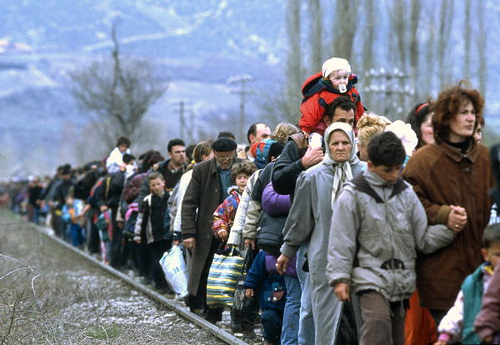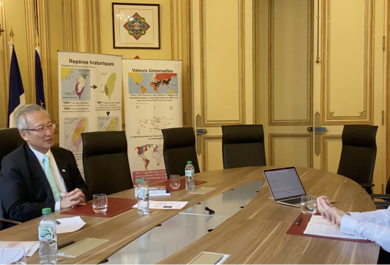
Today with rising populism all over the world, it seems that migrants are not welcome everywhere. Populist leaders are constructing their speeches against refugees making them responsible for the crisis, for taking jobs while natives are unemployed. It has been seen all over Europe, very recently in the Netherlands with Geert Wilders, in Great Britain with Nigel Farage, in France with Marine Le Pen and in the United States, with Trump declaring, “ »When Mexico sends its people, they’re not sending their best (…). They’re bringing drugs. They’re bringing crime. They’re rapists”. This quote gives a pretty accurate vision of the tensions that are surrounding migrants in today’s world.
We have been witnessing this phenomenon in Europe more intensely since last year’s episode of the migration crisis, with several million people fleeing the war from different regions of the world, especially Syria.
However, what most people don’t know is that immigration is essential to our economy in order to challenge other great countries. According to experts, developed countries can gain a lot from this huge influx of refugees. Indeed, the European Union Commission’s autumn economic forecasts in late 2015 explained that the three million-refugee influx should produce today a rise in annual GDP growth, between 0.2% and 0.5% in most EU countries. These figures totally contrast with the image that far-right parties and movements across Europe are trying to give to refugees.
Also, a working paper led by four influential economists such as Giovanni Peri, professor at UC Davis, or Panu Poutvaara, professor at the University of Munich, has shown that last year immigration benefited local populations in 19 out of the 20 industrialized countries analyzed in the study. Another of their studies has looked at the influx of refugees in Denmark in the 90’s and the economists have concluded that native workers were more likely to switch to more skilled jobs, as migrants would take the low skilled ones. As a consequence, local workers would earn higher wages than before the arrival of refugees. This theory completely shatters the idea that they would steal jobs to people born in the country.
Migrants have also an important impact on countries that have a low birthrate, below the generation’s renewal line of 2.1 children per woman. Therefore, Germany for example that has a birthrate of 1.38 children per woman, is highly benefiting from the influx of migrants and especially since they had an aging population. This is a consequence of Merkel’s policy, as she largely opened the doors of her country to Syrians. Therefore, the country’s GDP is expected to increase more dramatically. These facts go against the different theories according to which migrants would only worsen the consequences of the economic crisis that we have been undergoing since 2008.
It is important to note here is that Europe has the economic possibility to welcome them. It is true that in the first place, states will have to increase public spending. But economy is a long-term matter. Public spending may be seen as a burden today but it is a long-term investment. Let’s just give a look at the bet that Canada’s Prime Minister, Justin Trudeau did. Indeed, he offered the possibility for migrants not wanted in the US to go live in Canada because he saw the economic opportunity that was offered to his country.
Even though populism is rising in Europe and blaming refugees for worsening the consequences of the crisis, welcoming them can be a cause of economic success in developed countries.
Sources:
Photo crédit : Kosovar refugees fleeing their homeland. [Blace area, The former Yugoslav Republic of Macedonia] : 01/03/1999. Blace. UN Photo/R LeMoyne
The Independent : “The refugee crisis is actually having ‘sizable’ economic benefits in European countries” :
http://www.independent.co.uk/news/world/europe/the-refugee-crisis-will-actually-have-a-sizable-positive-economic-impact-on-european-countries-eu-a6722396.html
The New York Times : “Europe Should See Refugees as a Boon, Not a Burden”.
https://www.nytimes.com/2015/09/19/opinion/europe-should-see-refugees-as-a-boon-not-a-burden.html
The New York Times : “European Union Predicts Economic Gains From Influx of Migrants” :
https://www.nytimes.com/2015/11/06/business/international/european-union-economic-forecast-migrants-refugees.html
Libération “L’immigration, une force plus que vive”.
http://www.liberation.fr/futurs/2017/03/06/l-immigration-une-force-plus-que-vive_1553685
The Independent : “Number of Syrian refugees britain has taken in would fit on a tube train”
http://www.independent.co.uk/news/uk/home-news/refugee-crisis-number-of-syrian-refugees-britain-has-taken-in-would-fit-on-a-tube-train-10482714.html





No Comment